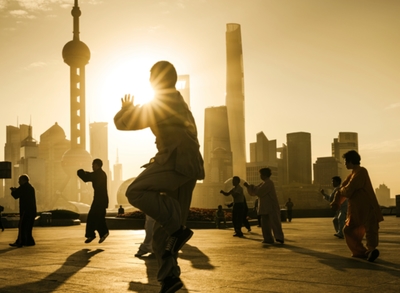There’s no country quite like China. First, its sheer size and immense population combine to project strength that is paralleled only by the United States. Two giants. One is ancient and still living with themes from its culture that have survived numerous dynasties, colonialism, communism, and a government-controlled economy. The United States, with a history that is shorter than many of the Chinese dynasties, has a larger economy, but many wonder exactly when it will be overtaken by China.
strength that is paralleled only by the United States. Two giants. One is ancient and still living with themes from its culture that have survived numerous dynasties, colonialism, communism, and a government-controlled economy. The United States, with a history that is shorter than many of the Chinese dynasties, has a larger economy, but many wonder exactly when it will be overtaken by China.
Confucian culture still lives today. Although not everywhere and at times difficult to identify, it is still implanted in the hearts of the people. Confucianism is more of a philosophy and a way of life, though many people think of it as a religion. Confucius lived in the era around 500 B.C. His teachings have ebbed and flowed over the long period of Chinese history. Yet today, Confucian thought strongly influences many aspects of Chinese culture. Confucianism is built on ethical principles that are strikingly humanistic at heart. People are seen as basically good; they can be educated and become even better, leading to strong family and community relationships.
The idea of relationships is foundational to modern Chinese culture, and it’s important to appreciate this when dealing with the Chinese people. Even though the Chinese have endured many periods of violence, they aspire to harmony and peace. The relationship pattern of father and son (to name just one of these patterns) provides a solidity to the culture and guides people in their behaviors. Looking beyond the obvious racial differences, these behavioral patterns make it easy to identify who is on the inside and who stands outside. These patterns also hold even with hua chiao (Chinese who live abroad) who haven’t ever been to China in their lifetimes.
The Chinese—with their strong focus on caring for their elders, respecting their parents, and working for the financial benefit of the family (even the extended family)—stand out as good citizens and successful business or professional people. Visit any Asian country (Malaysia, Thailand, Vietnam, Thailand, the Philippines, Indonesia) and you will find that the Chinese play a remarkably strong role in their economies. While they have adapted to the local cultures, you can still identify the Chinese, if nothing else than by their family names.
The only exception is Thailand, where the Thai government at one point resisted the way the Chinese dominated the economy. (There are close to 10 million Chinese living in Thailand, making up 14% of the total population.) Thai officials passed a law in 1913 that only people with multi-syllabic names could become Thai citizens and thereby engage in many occupations. So the Chinese promptly changed their last names to Thai-like names (typically incorporating their traditional Chinese name, resulting in an even longer Thai family name). Name changes didn’t stop the Chinese; they continue to dominate the Thai economy.
The Chinese follow many rules, rigorously taught by parents and grandparents who are not dismissed by Chinese children, but revered. These rules include patterns around eating, hospitality, dress, noise, and even posture. They are not just rules to be followed for themselves; rather, they reinforce living in harmony and strong relationships.
The Chinese do tend to be quiet. While working in China, Hong Kong, and Singapore, I have been struck by what I felt on occasion were disquieting differences. For example, it is not uncommon to give a speech and get little reaction in terms of discussion, facial expression, or applause, and then have participants come up to say the speech was the best they have ever experienced. My inclination is to think, “Then why didn’t you show it?” But that comes from my Western approach, and to work with the Chinese, in particular, it helps to not interpret their subdued reaction as disinterest. No doubt they are paying close attention.
The Chinese almost always eat at round tables, making it easier to share. If you are the guest, they will literally put food in your rice bowl. They will give you the delicacies (such as fish eyes), and you had better eat what you are served. Eat sparingly because there will be many dishes. Compliments about the food should be plentiful and never take the last bite from the common service plates. If you clean your plate or bowl, your hosts will continue to put more food on your plate because they think you are still hungry. You will make mistakes, but that’s OK. Just ask lots of questions and apologize when you make a mistake.
Keep your eyes on your hosts while at a meal and follow their lead. Hierarchy determines who sits where. Business is typically not discussed while eating. You are there to form a relationship, not further economic interests and for this reason, drinking alcohol is important. Give an excuse, such as health, if you choose not to imbibe. Learn how to use chopsticks, because eating with utensils will definitely make you look like an outsider and clasp the chopsticks at the upper ends and not down by the tips. You just have to practice to get good at it. Think of the chopsticks as an elegant extension of your fingers.
If you offer to help someone, you should definitely follow through. “You must come and stay with us” should be said sincerely and not just as a throwaway line. It will be good for your relationships with your Chinese business partners and will bring you into their inner circles.
Once you understand the rules, it’s easy to deepen relationships with your Chinese counterparts. You will definitely enjoy the ride!